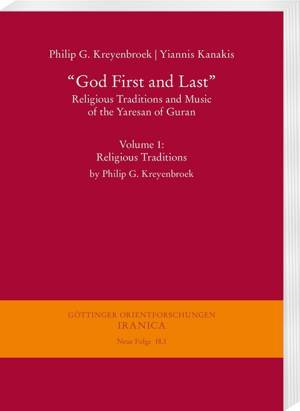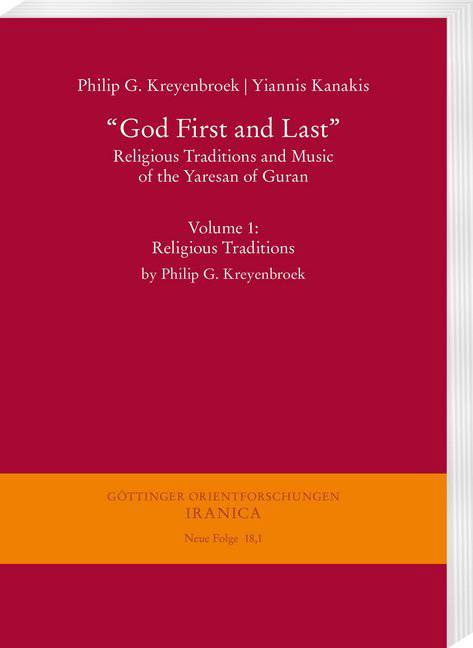
- Afhalen na 1 uur in een winkel met voorraad
- Gratis thuislevering in België vanaf € 30
- Ruim aanbod met 7 miljoen producten
- Afhalen na 1 uur in een winkel met voorraad
- Gratis thuislevering in België vanaf € 30
- Ruim aanbod met 7 miljoen producten
God First and Last'. Religious Traditions and Music of the Yaresan of Guran
Volume 1: Religious Traditions by Philip G. Kreyenbroek
Yiannis Kanakis, Philip G Kreyenbroek
€ 93,45
+ 186 punten
Omschrijving
The Yaresan or Ahl-e Haqq are a relatively large minority group whose religion originates in the border regions between Iran and Iraq. As members of traditional Yaresan communities are becoming more visible in the West, both as diaspora groups and in academia, there is an increasing demand for reliable information about their background. Academic interest is also growing. Recent scholarly publications, however, tend to assume a fundamental knowledge of the Yaresan tradition, which is not easy to glean from existing sources. This is made more complicated by the very real differences between the European world view and that of traditional Yarsanism. For that reason and because music plays an unusually prominent role in Yaresan observance, it was decided to combine the authors' work on religious traditions and music respectively in two volumes. In doing so the religious realities of the traditional Yaresan of the Guran region is communicated by quoting extensively from interviews with community members. The first volume also offers a survey of other religious traditions that are thought to have been influential in shaping modern Yarsanism.
Specificaties
Betrokkenen
- Auteur(s):
- Uitgeverij:
Inhoud
- Aantal bladzijden:
- 188
- Taal:
- Engels
- Reeks:
Eigenschappen
- Productcode (EAN):
- 9783447114240
- Verschijningsdatum:
- 24/04/2020
- Uitvoering:
- Paperback
- Formaat:
- Trade paperback (VS)
- Afmetingen:
- 170 mm x 239 mm
- Gewicht:
- 340 g

Alleen bij Standaard Boekhandel
+ 186 punten op je klantenkaart van Standaard Boekhandel
Beoordelingen
We publiceren alleen reviews die voldoen aan de voorwaarden voor reviews. Bekijk onze voorwaarden voor reviews.










